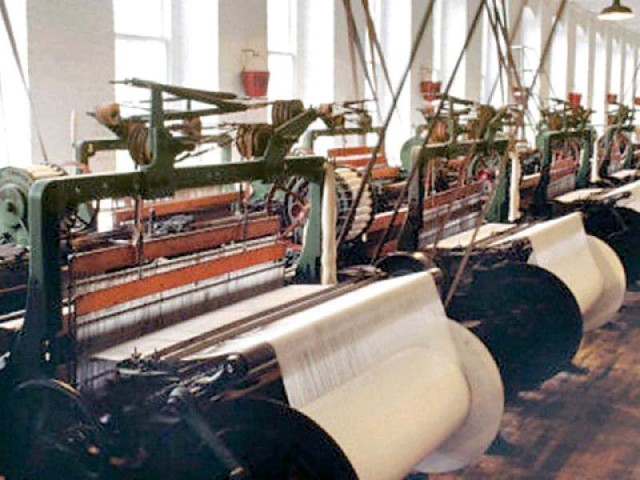Textile lobbies demand industrial census to resolve problems
Blame uneven tax policies, high operating costs for weakening exports

Instead of outdated machinery and depressed foreign demand, industry representatives consider uneven industrial and tax policies, smuggling and high cost of doing business as the main causes of weakening exports. PHOTO: FILE
The census will help in understanding the real strength of the textile industry, depending on which real challenges faced by the troubled sector can be examined.
“The ministry is laying the entire blame on businesses for using outdated technology and on reduced international demand due to global recession,” Pakistan Readymade Garments Manufacturers and Exporters Association (PRGMEA) Chairman Ijaz Khokhar said while talking to The Express Tribune.
He rejected the government’s assertion of outdated technology, arguing that most production units were equipped with semi-automated machinery to ensure operational efficiency.
“We are competing in global markets and international players never visit any factory and place orders with the units working with outdated technology as they have strict quality control measures in place,” Khokhar said.
“What about Bangladesh, China, Vietnam and other such countries whose exports are rising; are they not being hit by this recession,” he asked while dismissing government’s claim of global recession hitting Pakistan’s exports.
“The industry needs a census so the government and stakeholders could discover its actual strength based on which future strategies should be made,” Khokhar added.
Textile exports recorded a high of $13.8 billion in 2013-14, but they dropped to $12.14 billion in 2015-16. In the first 11 months of 2016-17, the exports stood at $11.23 billion.
Instead of outdated machinery and depressed foreign demand, industry representatives consider uneven industrial and tax policies, smuggling and high cost of doing business as the main causes of weakening exports.
Former All Pakistan Textile Mills Association Punjab chairman Shahzad Ali Khan believes old technology was a reason behind the current state of affairs in the textile sector due to which the industry was dying slowly.
“Indian businesses have successfully automated their industries due to which they are more energy efficient. India is now manufacturing textile machinery whereas we in Pakistan are not even producing its spare parts,” Khan said.
He added many groups in Pakistan had successfully upgraded their facilities, but for medium-sized enterprises the situation was precarious since their liquidity had dried up over the years and no bank was willing to give them fresh loans to update technology.
Former All Pakistan Textile Processing Mills Association chairman Maqsood Ahmad said the textile industry in general was facing huge challenges, but a comprehensive research (through census) could help eliminate misconceptions about the industry.
“Industrial census is important to reveal structural deficiencies based on which the government and the stakeholders can overhaul the policies,” he added.
Published in The Express Tribune, July 23rd, 2017.
Like Business on Facebook, follow @TribuneBiz on Twitter to stay informed and join in the conversation.


















COMMENTS
Comments are moderated and generally will be posted if they are on-topic and not abusive.
For more information, please see our Comments FAQ